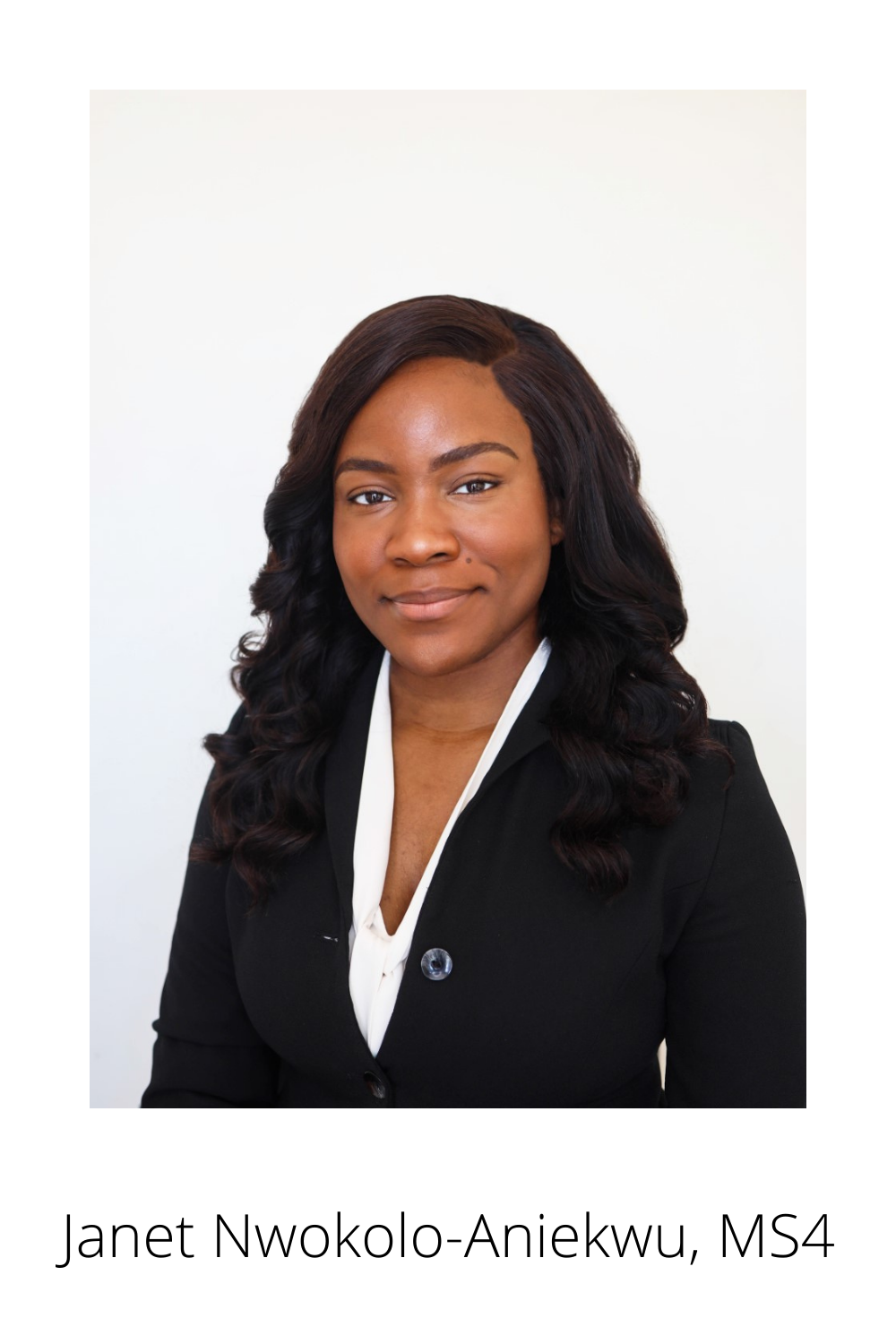Student Perspective: Janet Nwokolo-Aniekwu, MS4

Coloniality in Global Health
The main troublesome source of “coloniality” in global health is the mentality held by those who come to do mission work and their approach in the country and towards the people they desire to serve. Too often, individuals and organizations blow past any thought of the local community’s pre-existing customs and health systems to bring what they believe to be the “better, healthier way.” With an unintentional undertone of arrogance, cookie-cutter solutions are applied to the health issues endemic to a region without first fully investigating its region-specific determinants of health. The result is a haphazardly superimposed solution, impractical for the region and whose success is short-lived.
Definition of Global Health
To get at the root of coloniality in global health, we must revamp our definition of global health. As it stands, it presents as a prototypical savior effort in which Western medical practices dominate. Though supporting and caring for our fellow man is the goal, we must first look at our fellow man as truly fellow. Thus, the foundation of global health training and practice must be cultural, political, and geographic literacy and respect supplemented by interventions that consider pre-existing health systems. 
Colonial Mindset
As critical my review, I too have been guilty of an unintentional air of this colonial mindset. In 2018, along with a group of colleagues from various professional backgrounds, I helped organize a rural healthcare initiative trip to Akwa-Ibom, Nigeria as part of the African Impact Initiative. We were fortunate enough to raise funds to hand-deliver much needed medical supplies to the local community hospital, host a miniature health-screening, and send volunteers to help deliver lectures on health issues endemic to the region. Prior to our trip, we researched preventable illnesses common in the region, prepared translators, and connected with people of the community to ensure we did not overlook details about important local customs. What we did not consider in generating our lectures, however, was whether there already existed a group of community healthcare educators or the various education levels of the group that would gather that day.
A Lesson
Though these things did not prove to be a major hurdle to our efforts, debriefing with our team highlighted where we could have been more effective and sensitive to what resources the hospital and region already possessed. It was a lesson in humility. Our team of professionals was entirely composed of Nigerians, and I assumed that we would be the perfect cohort to leave a meaningful impact. However, only one of us had connection to that specific region of Nigeria. From this experience, we gleaned that no matter how skilled or well-intentioned one is, a humble opinion of oneself and service mindset must be foremost among those who desire to practice global health.